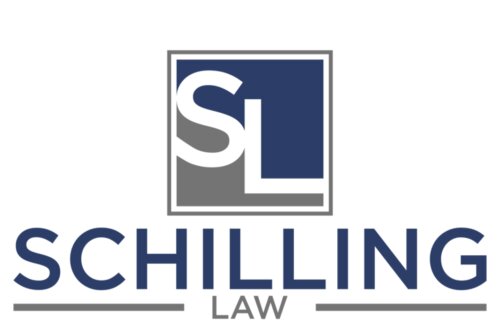Best Commercial Litigation Lawyers in Kansas
Share your needs with us, get contacted by law firms.
Free. Takes 2 min.
Or refine your search by selecting a city:
List of the best lawyers in Kansas, United States
About Commercial Litigation Law in Kansas, United States
Commercial litigation refers to the legal process of resolving disputes related to business and commerce through the court system. In Kansas, as in other states, commercial litigation covers an array of legal conflicts between businesses or between businesses and individuals. These disputes often involve breach of contract, business torts, partnership and shareholder disagreements, intellectual property, non-compete clauses, and more. The Kansas courts have established procedures and rules to address such disagreements, aiming to resolve them fairly and efficiently through negotiations, mediations, or trials.
Why You May Need a Lawyer
Businesses and individuals may require legal assistance in commercial litigation for various reasons. Common scenarios include:
- Breach of contract disagreements, such as failure to deliver goods or services as agreed
- Partnership disagreements or shareholder oppression in closely held companies
- Disputes regarding non-compete or non-disclosure agreements
- Allegations of fraud, misrepresentation, or unfair business practices
- Intellectual property disputes, such as unauthorized use of trademarks or trade secrets
- Debt collection and disputes over payment or performance
- Business dissolution, buyouts, or mergers and acquisitions gone awry
- Employment-related claims impacting business operations
A qualified commercial litigation attorney can provide strategic legal advice, evaluate your case, guide you through complex Kansas legal procedures, and represent your interests in negotiations or court proceedings.
Local Laws Overview
Kansas commercial litigation is governed by state and federal laws, as well as specific procedures unique to local courts. Notable points relevant in Kansas include:
- Statutes and Codes: The Kansas Statutes Annotated (KSA) contain laws that regulate business practices, contracts, fraud, and corporate governance.
- Court System: Most commercial disputes are filed in Kansas District Courts, but certain cases involving federal law or higher monetary thresholds may proceed in United States District Court for the District of Kansas.
- Filing Deadlines: Kansas imposes statutes of limitations on lawsuits, which means you have a set period to bring a commercial litigation claim after the dispute arises. For written contracts, the statute of limitations is generally five years, while for oral contracts it is three years, but these can vary based on the type of claim.
- Alternative Dispute Resolution: Courts in Kansas may require or encourage mediation or arbitration before proceeding to trial, which can save time and expense.
- Damages: Kansas law allows for recovery of both actual damages and, in some cases, punitive damages for egregious conduct such as fraud, subject to statutory caps.
- Attorney Fees: Unless a contract explicitly allows for attorney fee recovery, or unless there is a statute that permits it, each party typically pays their own legal fees in Kansas.
- Uniform Commercial Code (UCC): Many business transactions in Kansas are subject to the UCC, which sets out rules regarding sales of goods, negotiable instruments, and secured transactions.
Frequently Asked Questions
What types of cases are considered commercial litigation in Kansas?
Commercial litigation includes disputes involving business contracts, partnerships, intellectual property, creditor-debtor matters, employment disagreements affecting the business, and conflicts between businesses or with individuals related to commerce.
Do I have to go to court for my commercial dispute?
Not always. Many commercial disputes in Kansas are resolved through negotiation, mediation, or arbitration. Courts often encourage or require trying these alternative dispute resolution methods before proceeding to trial.
How long does a commercial litigation case take in Kansas?
Timelines vary based on the complexity of the dispute, court schedules, and the willingness of parties to settle. Some cases resolve in a few months, while others, especially those that go to trial, can take a year or more.
What is the statute of limitations for commercial litigation in Kansas?
For written contracts, the statute of limitations is generally five years. For oral contracts, it is three years. Other types of business claims may have different deadlines, so it is important to consult with a lawyer promptly.
Can I recover attorney fees if I win my case?
In most cases, each party is responsible for their own attorney fees unless a contract or statute provides otherwise. Some statutes or contract provisions allow for recovery of attorney fees by the prevailing party.
What is mediation and is it required?
Mediation is a voluntary or court-ordered process where a neutral third party helps disputing parties try to reach a settlement. Courts in Kansas often require parties to attempt mediation before proceeding to a full trial.
Do Kansas courts recognize non-compete agreements?
Kansas courts do enforce non-compete agreements if they are reasonable in scope, duration, and geography, and if they protect a legitimate business interest. Overly broad agreements may be limited or invalidated by the court.
Can I file a commercial lawsuit in federal court?
Yes, if the dispute involves a federal question, such as intellectual property law, or if the amount in controversy exceeds seventy five thousand dollars and there is diversity of citizenship between the parties. Otherwise, the case may be handled in Kansas state court.
What damages are recoverable in a commercial litigation claim?
Typical damages in Kansas commercial litigation include direct financial losses, consequential damages, interest, and in some cases, punitive damages for willful misconduct such as fraud. The nature and amount of recoverable damages depend on the facts of the case and applicable law.
How do I find the right Kansas commercial litigation lawyer?
Look for an attorney with experience in the specific area of business law relevant to your case, familiarity with Kansas courts, and a track record of success in similar disputes. It is often helpful to schedule an initial consultation to discuss your case and evaluate the attorney’s approach.
Additional Resources
If you are facing a commercial dispute in Kansas, several resources are available to help you understand your legal options and find professional assistance:
- Kansas Judicial Branch: Offers information on local courts, filing procedures, mediation services, and forms.
- Kansas Bar Association: Provides a lawyer referral service and educational resources on commercial law topics.
- U.S. District Court for the District of Kansas: Handles federal cases and provides rules, forms, and case information.
- Johnson County Law Library: Offers public access to legal research databases and staff to assist with research questions.
- Small Business Development Center (Kansas SBDC): Gives guidance on legal and regulatory operations for Kansas businesses.
Next Steps
If you need legal assistance with a commercial litigation matter in Kansas, consider the following steps:
- Gather any relevant documents, such as contracts, correspondence, invoices, and emails related to your dispute.
- Write down a timeline of key events and communications surrounding the dispute.
- Contact an experienced Kansas commercial litigation lawyer to discuss your situation and receive an initial assessment.
- Consider alternative dispute resolution options such as mediation or arbitration, which can often resolve cases more quickly and cost effectively than trial.
- Be proactive, as waiting too long to address a legal conflict could affect your rights due to statutes of limitations or loss of crucial evidence.
A knowledgeable attorney can guide you through each step, explain your legal options, and represent your best interests throughout the process.
Lawzana helps you find the best lawyers and law firms in Kansas through a curated and pre-screened list of qualified legal professionals. Our platform offers rankings and detailed profiles of attorneys and law firms, allowing you to compare based on practice areas, including Commercial Litigation, experience, and client feedback.
Each profile includes a description of the firm's areas of practice, client reviews, team members and partners, year of establishment, spoken languages, office locations, contact information, social media presence, and any published articles or resources. Most firms on our platform speak English and are experienced in both local and international legal matters.
Get a quote from top-rated law firms in Kansas, United States — quickly, securely, and without unnecessary hassle.
Disclaimer:
The information provided on this page is for general informational purposes only and does not constitute legal advice. While we strive to ensure the accuracy and relevance of the content, legal information may change over time, and interpretations of the law can vary. You should always consult with a qualified legal professional for advice specific to your situation.
We disclaim all liability for actions taken or not taken based on the content of this page. If you believe any information is incorrect or outdated, please contact us, and we will review and update it where appropriate.
Browse commercial litigation law firms by city in Kansas
Refine your search by selecting a city.

















